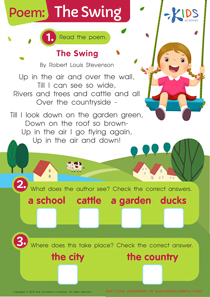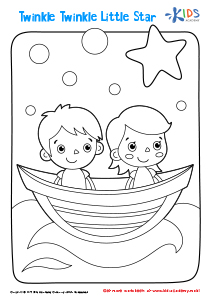Vocabulary Building Normal Grade 3 Reading Comprehension Worksheets
4 filtered results
-
From - To
Enhance your third grader’s vocabulary and reading skills with our Vocabulary Building Normal Grade 3 Reading Comprehension Worksheets. These carefully crafted exercises are designed to expand word knowledge while boosting the ability to understand increasingly complex texts. Each worksheet presents engaging passages followed by questions that reinforce critical thinking and contextual understanding. Perfect for both classroom and home use, these worksheets support essential literacy skills, helping young learners confidently navigate through their academic journey. Explore our wide range of fun and educational resources to make vocabulary building an enjoyable and rewarding experience for your child.
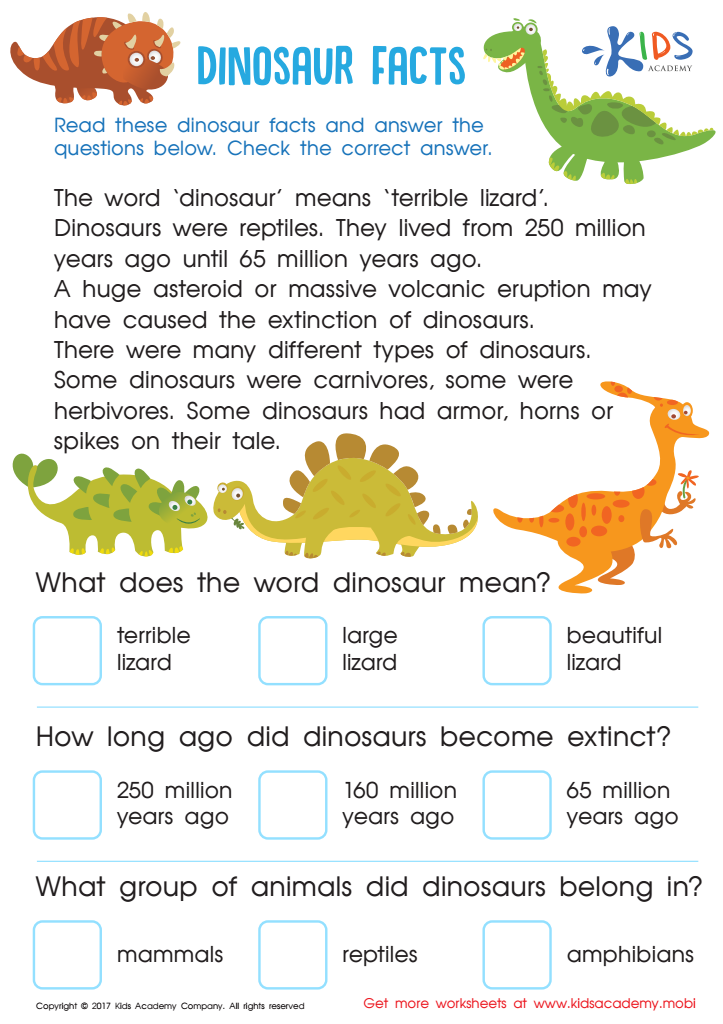

Dinosaur Facts Worksheet
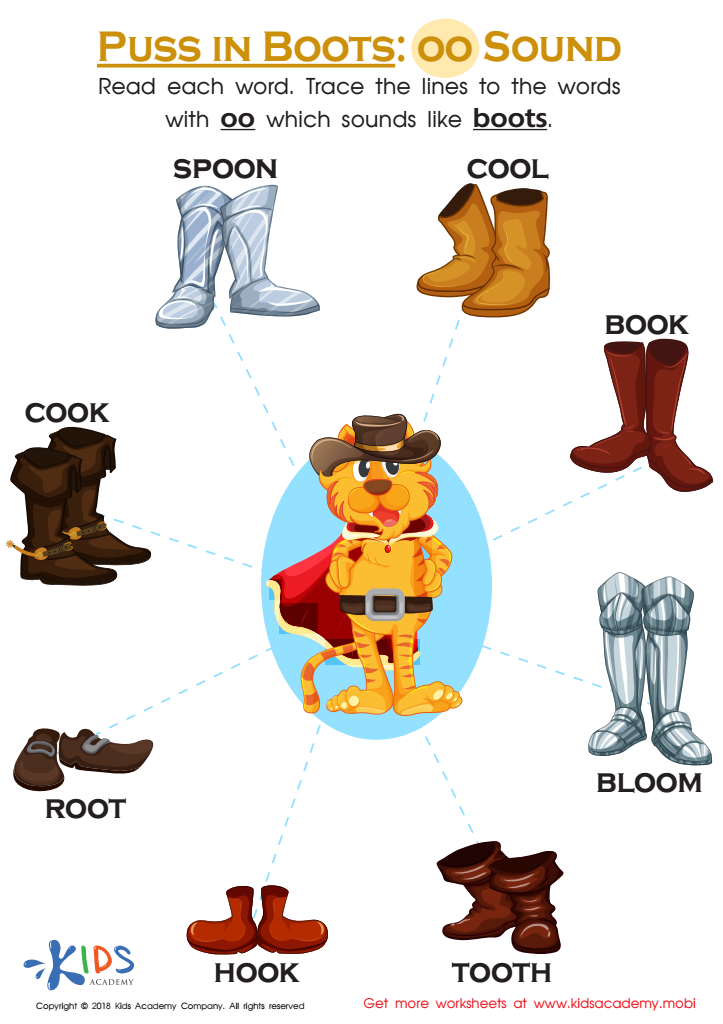

Puss in Boots: OO Sound Worksheet
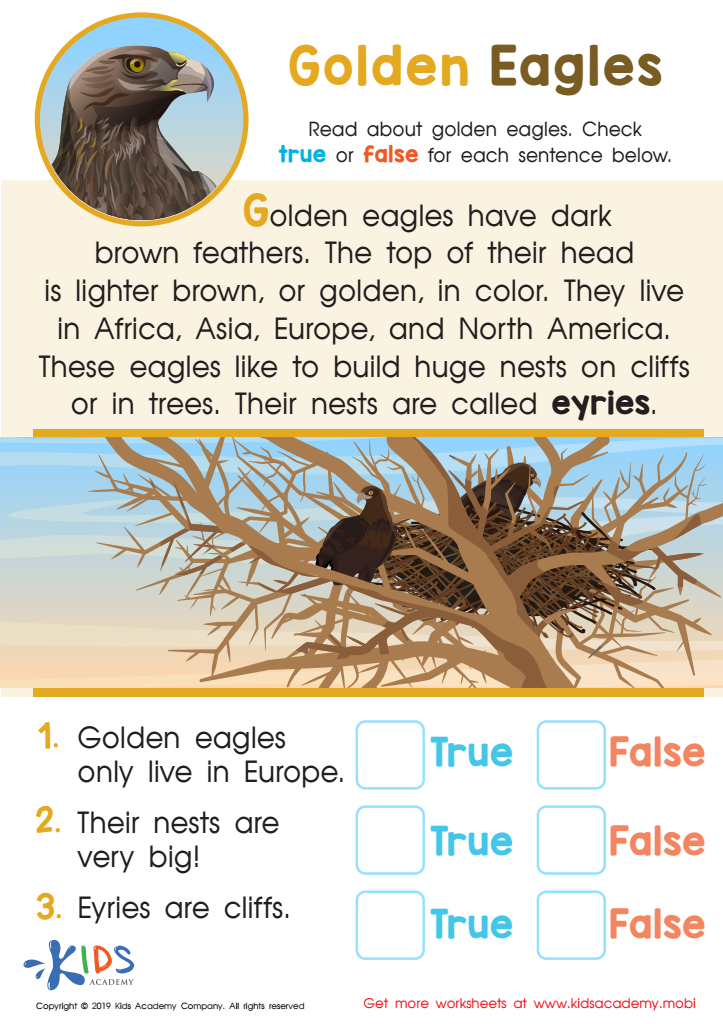

Golden Eagles Worksheet
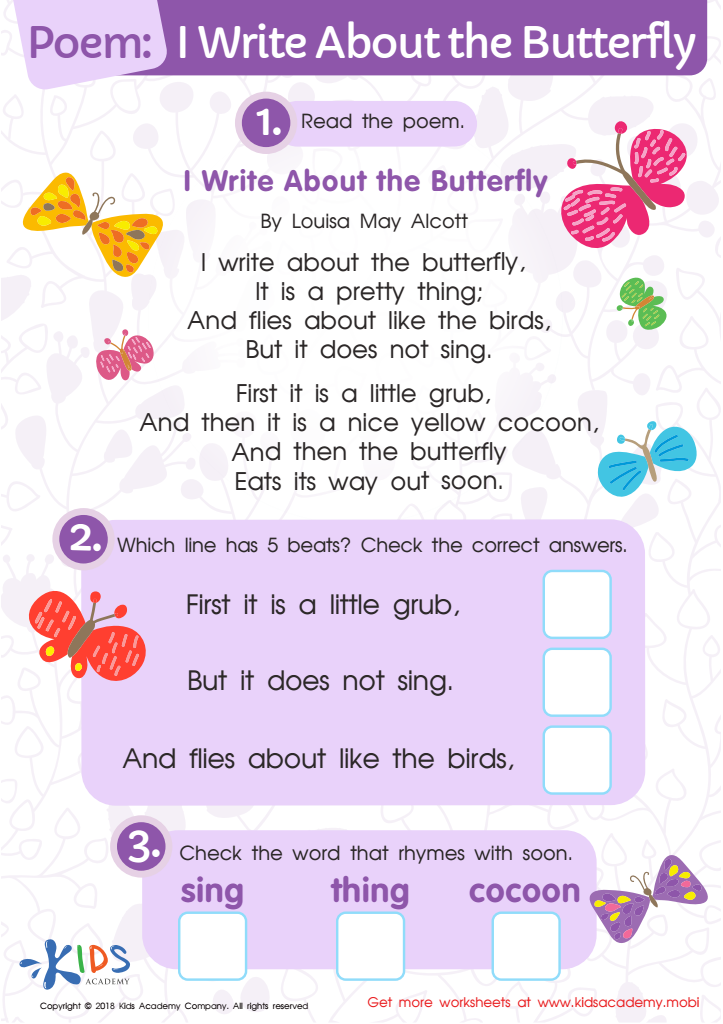

Poem: I Write About The Butterfly Worksheet
Vocabulary building is fundamental to developing reading comprehension skills, particularly in Grade 3 when students are transitioning from learning to read to reading to learn. At this age, students encounter increasingly complex texts in various subjects, making a robust vocabulary essential for understanding and engaging with the material.
First, a strong vocabulary directly impacts a child's ability to grasp the meaning of what they read. Familiarity with a broad range of words helps students decode and comprehend text more efficiently, improving overall reading fluency.
Second, building vocabulary supports critical thinking and the ability to make inferences. When students understand and can use a wide array of words, they are better equipped to connect different concepts and ideas within a text. This comprehension boost is crucial across all subjects, supporting overall academic success.
Furthermore, a rich vocabulary enhances communication skills. Students who can express themselves clearly and accurately are more confident and effective in both speaking and writing. This boosts classroom participation and collaboration with peers and teachers.
Hence, parents and teachers should prioritize vocabulary building as it equips students with essential tools for academic growth, fostering a lifelong love for reading and learning.
By integrating vocabulary exercises and encouraging reading, we lay the foundation for not just improved reading comprehension, but for holistic educational development.

 Assign to My Students
Assign to My Students











